“Vietnam was the first war ever fought without censorship. Without censorship, things can get terribly confused in the public mind.”
William Westmoreland.
“Well, I learned a lot…. I went down to (Latin America) to find out from them and (learn) their views. You’d be surprised. They’re all individual countries”
Ronald Reagan.
‘The way I see it, the revolution that toppled him [Somoza]— became a communist coup, and so the contras, so-called, are against it, and so I guess in a way they are counterrevolutionaries and God bless them for being that way. I guess that makes them contras and so it makes me a contra, too.’
“Those who cannot remember history are condemned to repeat it.”
Since 1823 the United States has operated under the Monroe Doctrine, embracing the principle that as the dominant power in the Western Hemisphere, it has the right, according to the United States, to intervene against any country that might threaten it’s alleged interests.
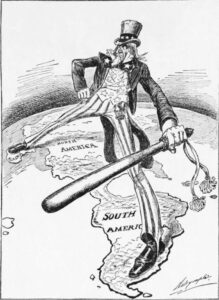
Namely its access to abundant supplies of natural resources and cheap products.
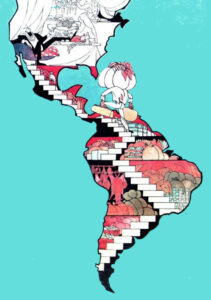
High on the list of desirable resources they’re after is oil.
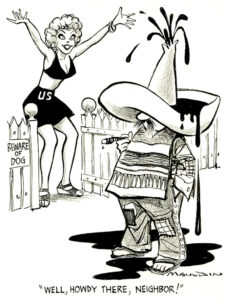
That’s United States policy. It has meant it’s military observers keeping a close eye on what’s going on in the region, on things such as election results.
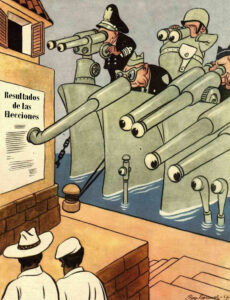
The US has long been concerned about movements that demand their national resources be controlled by the producing countries themselves.
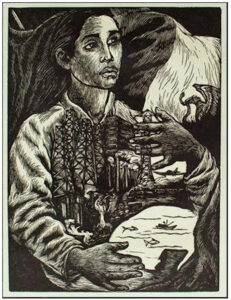
Not just that, it has been especially concerned when they threaten to carry out agrarian reform. This enables the large land holdings to be owned by those who work them.
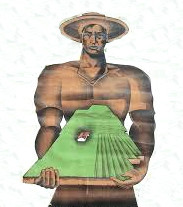
The US has been long concerned about attempts to reject its interventionism.
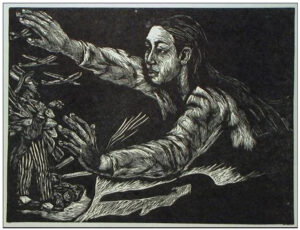
Under the Monroe doctrine, the United States has undermined and overthrown at least a dozen countries throughout Latin America, Central America and the Caribbean. It tried to do this unsuccessfully in Cuba after Castro’s forces overthrew the US backed dictator, Fulgencio Batista.
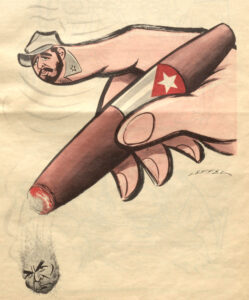
Batista was a man described by JFK as ‘the incarnation of a number of sins on the part of the United States.
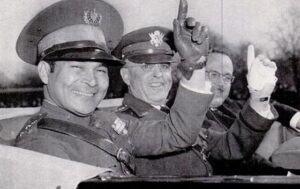
In 1964 the US supported the military coup in Brazil.
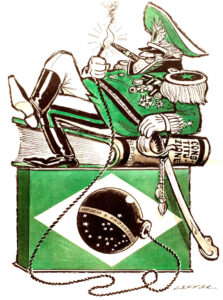
In order to try this on again, the US once more depended on the big lie. This was not the first time that the American people and those of the world had been misled by the leadership. We were misled by those who created the falseness of the Bay of Tonkin, which falsely led us into a war with Vietnam, a war that we could not and did not win. They lied to the American people about Grenada and what was going on in that tiny island.
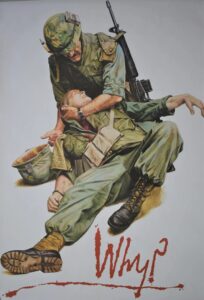
They lied about Nicaragua, El Salvador, Cuba and many places in the world. As they were attempting to lie about and undermine the Sandinista government of Nicaragua. I felt whole hearted ardour for the popular forces fighting defenders of the US installed Somozist dictatorship.
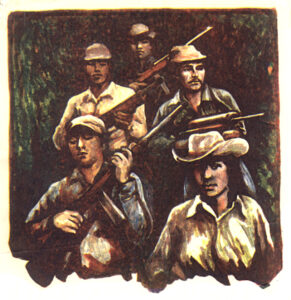
The brutal dictatorship was engaged in a scorched earth policy committing widespread human rights abuses as it determined to hang on to power.
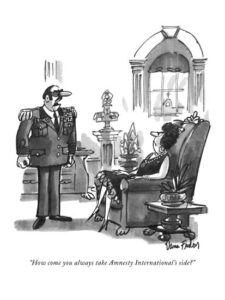 The Sandinista leadership had initiated the regime’s overthrow and set into play the revolutionary dynamic concomitant with popular empowerment. It mobilized farmers and workers to reconstruct property damaged by an earthquake years earlier. It mobilized them to channel the resources of their land of lakes and volcanoes to feeding and developing its poverty stricken people.
The Sandinista leadership had initiated the regime’s overthrow and set into play the revolutionary dynamic concomitant with popular empowerment. It mobilized farmers and workers to reconstruct property damaged by an earthquake years earlier. It mobilized them to channel the resources of their land of lakes and volcanoes to feeding and developing its poverty stricken people.
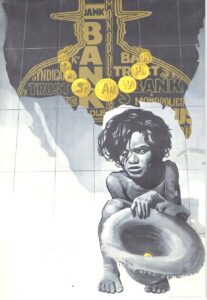
It set about the task of reducing illiteracy.
They began to demand their own rights and create their own organisations to satisfy their needs. They set up clinics to improve their health outcomes and self defence units to protect their gains.
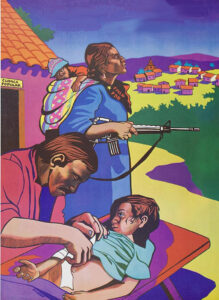
As to the likely result, it was still early days.
This tiny dirt poor country was flushed with self esteem and a sense of purpose. Alarmed by the prospect of another breakaway state in ‘its’ hemisphere the Reagan administration saw it as a big red dog digging up it’s own backyard. Although most bumper bar patriots wouldn’t have been able to find it on a map, the administration declared the new government a threat to U. S. national security. He warned it would provide a base from which the Soviets could head north and attack.
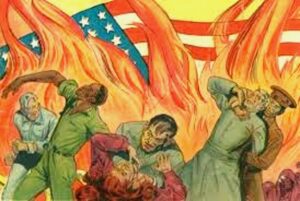
It began financing and training the Contras, a mercenary army based in Honduras.
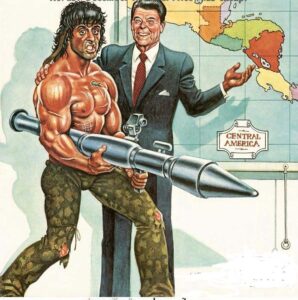
Running guns and interference for it, their operatives had been global gunslingers, foot soldiers in the Bay of Pigs, plumbers, janitors at Watergate, scalp hunters in Vietnam– all the same people, the same faces. In keeping the ‘ Reds’ in order, Reagan declared that Nicaragua was “a privileged sanctuary for terrorists and subversives’ .
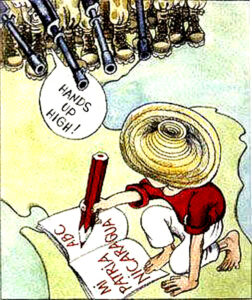
Unlike in Vietnam this time the US was ‘going to do it right’. They threw their weight behind the Nicaraguan Democratic Force [FDN]. This, the largest group in the Contras, would carry out out the hits.
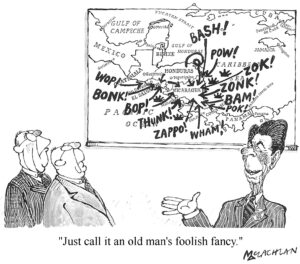
Payment for the hits was obtained at the cost of the lives of others.
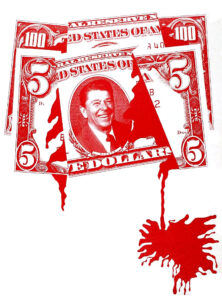
There were many mouths to feed.
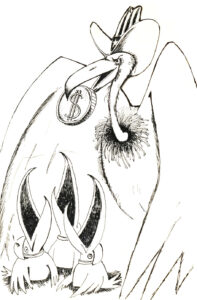
There was no pretence of the spirit of peace and hope that JFK had inspired.
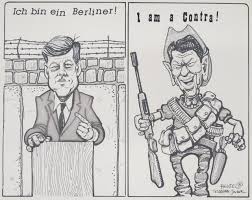
How could the Contras have been given such a free rein, you might ask. The blood from Vietnam had hardly dried. The reason was because no one did anything substantial about Watergate.
And Watergate happened because there were no consequences from the Bay of Pigs. The intelligence services had huge gaps in what they knew about the Contras.
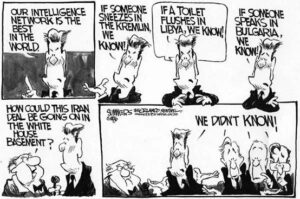
They knew there was overwhelming and incontrovertible evidence they were being sustained financially by the U.S.
The truth is that they were funded by illegal sales of weapons to the U. S.’ declared Iranian enemy.
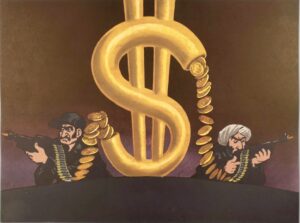
This wild bunch was equipped and armed with plausible deniability.
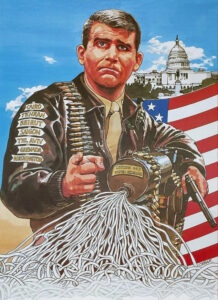
Everyone involved blamed someone else.
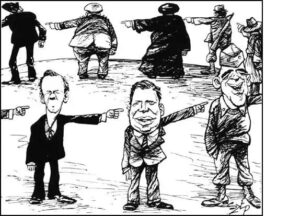
The Contras sapped the strength of the Sandinista government, carrying out deadly terrorising incursions and ‘burn and blow’ operations inside Nicaragua followed by retreat into their sanctuaries.
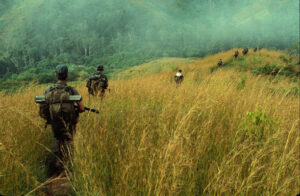
They also attacked by sea and air.
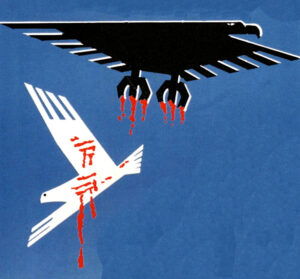
Eventually their destabilising effect on Honduras led to the fear they could threaten the security of the host government as well.
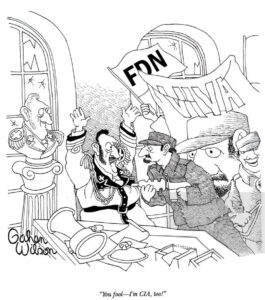
I believed that in keeping silent about this imperial criminality we were implanting it and allowing it to rise up a thousand fold in the future. I picked up my organized opposition with the Sydney committee formed as part of the wave of solidarity from all over the world, propelled by a sense of responsibility to oppose this cruel policy and to help materially those rebuilding this society. From similar modest and marginal origins , this was the largest international solidarity movement since the days of the Vietnam War.
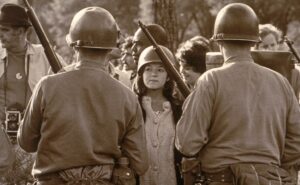
There is a sense in which nations exist in our consciousness only when ‘The Free World’ is up to it’s neck in a war there. For a while, all attention is focused on one place, and a great deal is learned about it. But once the war is over, attention turns inward –out of sight, out of mind- or, as has been the case in the post-War era, to the scene of the newest war.
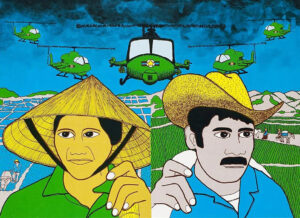
It is not necessarily that we lack an attention span, but that, in trying to help administer a growing global empire, our attention is necessarily scattered. While the Empire is trying to put out a fire on one side of the Earth, as sure as fate another fire begins to rage up from the sparks and tinder of history neglected.
We wanted to see the people of the United States understand that to stop the fighting, their government needed not to pour millions of dollars of more weapons in, but to say, “Negotiations now” and send humanitarian aid. That’s why we called people to come to our rallies, distribute our flyers, get people to sign petitions, saying we needed to end this war and not allow it to keep spreading.
Our first task was to flag up people on what was happening in this little known central American corner of the earth. The lamestream media lapdogs didn’t consider it important enough to warrant front page coverage even though the struggle was a very dramatic and uneven one, as dramatized in the movie ‘Under Fire”.
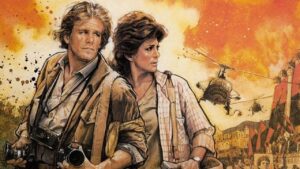
The movie captured the dangers faced by journalists.
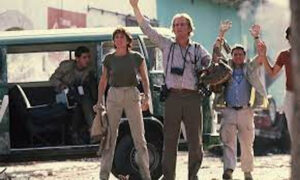
The murder of reporter Bill Stewart and his translator Juan Espinoza by Nicaraguan National Guard troops was caught on tape and became a major international incident.
In the movie Ed Harris appears as the entirely amoral American mercenary who fights for whoever will pay.
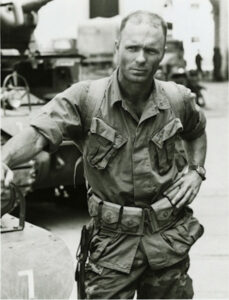
The most exciting developments – the literacy crusade and setting up of health clinics – were not considered attention grabbing topics. Hence our work to convey news through bulletins and talks addressed to interested media and to unions, university, political and religious associations. We argued that Nicaraguans needed to be sent books, not bombs.

Folding mailouts, stuffing envelopes with them, cranking out newsletters, and passing out leaflets, our aim was to harness and expand sympathy into action. We made our presence and ideas felt at various rallies.
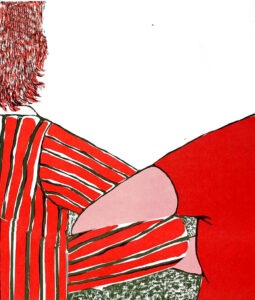
Getting our rail unions to cajole their American brothers into halting transport of weaponry bound for Honduras was an important goal.
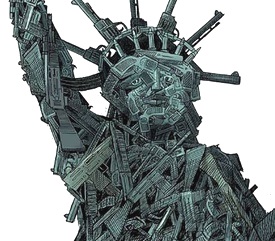
Stopping a train directly sadly cost one unfortunate American activist his legs. It was important to influence the Church because of deep involvement in the social revolution at all levels, defying dogmatic stereotyping.
I was most interested in spreading work of the UNESCO acclaimed literary crusade in which urban volunteers (brigadistas) worked alongside peasants in the day and taught them reading, writing, basic arithmetic and other subjects in the evenings.
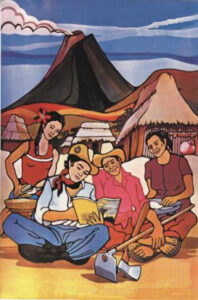
In Nicaragua fingerprints had been used as a common form of identification where official documents required a physical mark of identification.
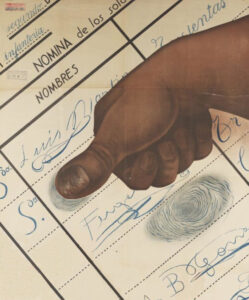
With the crusade illiteracy was pared down from over 50% to 12% in under six months.
I helped organize pickets of the US Consulate and cultural activities featuring Latin artists to raise the wind for the literary crusade. People are more likely to relate to others’ struggles when they become acquainted and taken with them. By the same token they can relate to them through the impassioned backing and power to delight of our own star performers. With such requisite qualities in mind, I wrote off to Maggie’s Farm to enlist the engagement of the headliner I felt best fitted the bill. Johnny Mellor.
Our Man in Grenada
“People do not need to be taught, so much as they need to be reminded.”
Samuel Johnson
Sandino in his tom mix hat
Gazes from billboards and coins
“Sandino vive en la lucha por la paz”
Sandino of the shining dream
Who stood up to the U. S. marines
Now Washington panics at U2 shots of “Cuban-style” latrines
Bruce Cockburn.
Charming is hardly the epithet that comes first to my mind when I spotted none other than John Mellor running rampant through the streets of Grenada, Nicaragua. This sorry sight was barely recognisable from the vigorous handsome person I had bid “adios” to in those heady days in London. While never a dedicated followed of fashion, he now looked as if he’d really gone to the dogs – dishevelled, blackened with grime, long scruffy beard, unkempt shoulder length matted hair crowned by a raggedy sombrero.
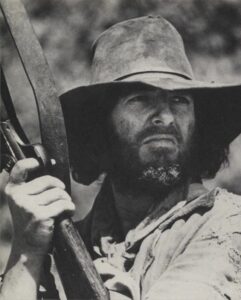
And what was this – a gun not a guitar across his knees, and a moth-eaten military tunic bedecked with medal ribbons. A close inspection would reveal that these were awarded to those veterans of American wars against their Latin neighbours. John was playing the bit part of Faucet the scurvy dishwasher in the surrealist historical epic, ‘Walker’. ‘Walker’ is loosed based on the story of the American military adventurer, played by Ed Harris, who marched his ragtag band of soldiers of fortune dubbed ‘The Immortals’ into Nicaragua in 1855.
Joe took the role very seriously in hopes it could bring some change and awareness to the ongoing unrest.
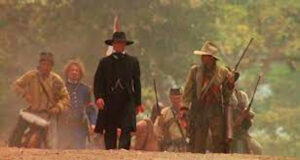
In the movie Ed Harris appears as the entirely amoral American mercenary who fights for whoever will pay.
He took hold of the country for a powerful grasping capitalist Cornelius Vanderbilt and conveniently fell into the president’s chair.

The film is laced with parallels to the US political meddling in the affairs of its neighbours from the 1850’s to the present. The justification is always that the US is exercising it godly right to civilize and to spread democracy. The robber barons such as Vanderbilt called this credo – the precursor to the contra aid policy – “Manifest Destiny”. That’s when they take what they can, when they can. Reagan would trot out the revamped version to save the Free World from the Evil Empire. Whether to expand the operation of Vanderbilt’s steamship business or to secure yanquistador domination of the Nicaraguan economy, the interventions brought more death and destruction to yet another country the US came to ‘save’.
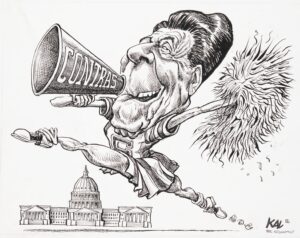
The film uses pythonesque satire and shock to convey its message. Walker is seen striding unscathed through hails of bullets consumed like his country with notions of his own freebooting self importance and invincibility. The screen is scattered with anachronisms bringing home parallels with contemporary policy. In some scenes soldiers drink Coca-Cola and puff on Marlboros.
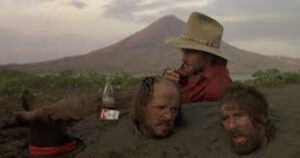
They read Time and Newsweek, making the point that today’s headlines are the same as yesterdays. The same old same old.
Machine gun tracers flash up into the sky. Outgoing mortars. Outgoing artillery. Incoming rockets. Illumination rounds pop high in the sky. There are even helicopters swooping into battle and coming to the rescue in Saigon evacuation style. The time warped spaghetti shoot-’em-up shocks a la Peckinpah with its balletic sequences of bloodletting captured in slow motion.
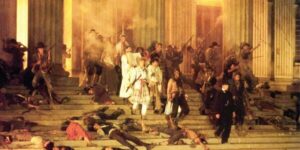
What Joe captured through his musical score was the tenor of the film, giving the violent graphic images of gore a lyric tragic feel
Like many, John had also been closely following events and didn’t need my encouragement to count himself in amongst the idealistic droves paying out of their own pockets to prop up this country under siege. What particularly incensed him was that its people were being bushwhacked as they attempted to repair damage from the earthquake. He had witnessed devastation along the same fault lines when he lived in Mexico. His political imagination fired, he travelled to war-torn Nicaragua to join the gonzo cast of cartoonish characters and to witness first hand what was going on.
Pumpkin Time:The Empire Strikes Back.
Ivory madonna dying in the dust,
Waiting for the manna coming from the west.
Barren is her bosom, empty as her eyes,
Death a certain harvest scattered from the skies.
Skin and bones is creeping, does`nt know he`s dead.
Ancient eyes are peeping, from his infant head.
Politician`s argue sharpening their knives.
Drawing up their Bargains, trading baby lives.
(Chorus)
Hear the bells are ringing, Christmas on it`s way.
Hear the angels singing, what is that they say?
Eat and drink rejoicing, joy is here to stay.
Jesus son of Mary is born again today.
Food For Thought.
UB 40
For many their first recollection of the country of Nicaragua and its leadership was through John, who had had meteoric success, making a name for himself as Joe Strummer. He was aiming to cut across Margaret Thatcher’s attempt at every term to criminalize the word ‘Sandinista’. With the youth and socialist movement going off the boil, punk groups like Joe’s Clash, the Jam and the Pistols made up a vital agitprop beachhead holding out against the unimpeded bracing tidal wave of globalising reactionary market fundamentalism.

It bore down on the planet with Reagan, Thatcher and the corporate conquistadores, planing through the spray , rising ever upwards and onwards, swamping most resistance in it’s path, commodifying everything and everyone, off- shoring jobs, rolling back and washing away historical gains, drowning many in debt, sending people into their shells. No Canute could resist it. In it’s wake normalising the entry of private capital into hitherto hallowed domains of public provision.
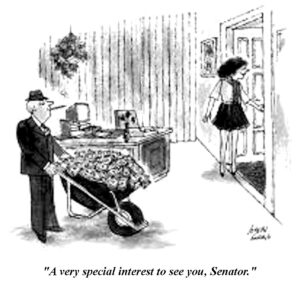
It unified the world into a single market, concentrating power into fewer and fewer hands- freer transnational hands, more avaricious by the minute.
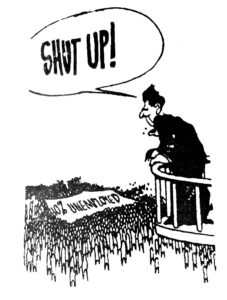
Clearing the way for the juggernaut, sweeping billions more people under its wing, shovelling them into it’s ravening maw, deregulating, under pricing risks, ignoring externalities, displacing traditional industry by property ‘development’, busting unions, making it as fashionable as conspicuous consumption, massively increasing suffering and exploitation of the people of the so-called Third World, as well as mind-numbing conformity and standardization. Threatening the species and our earthly mothership.
At the wheel of this buccaneering monstrosity the systems managers, the best that money can buy. More Masters of the Universe, believing what they do will make them as famous as if they had intercepted messages from distant galaxies. Highly astute and intelligent in a kind of analytical way but knowing only how to service a particular system. Propagating the idea that somehow the marketplace should determine human behaviour and guide human activity. Getting the polling results they want by massaging the truth. With cash registers for hearts, telling workers that they have to be competitive in a global marketplace- competitive with prison labour in China or sweatshop workers in Bangladesh.
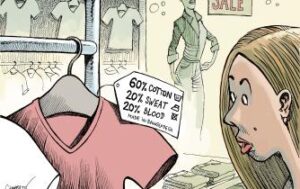
Bringing a rapidly disintegrating society increasingly hung up on personal gratification and the mindless pursuit of wealth. Charlatans conning working people into thinking that being self-employed, owning a few shares, or a council house somehow meant their lot in life had improved. Wiping masses out when the bubble inevitably burst.
Keeping the poor absent, invisible from debates, teaching them through austerity measures and the steady drip of hate from sections of the media to be embarrassed about their poverty and to be silent. Training them to accept neoliberalism and globalisation not simply as the dominant paradigm, but as the only one. Eroding thinking of the welfare state as a means of levelling inequalities and promoting egalitarianism.
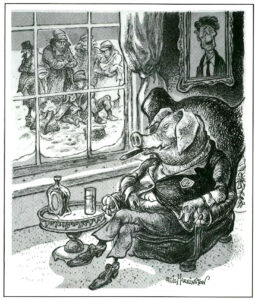
Instead getting them used to contemporary debates being framed via mid-Victorian understandings of poverty. Political discourse, then as now, placing the emphasis on an individual’s own failings and behaviour, and away from any acknowledgement of the broader structural factors which form the backdrop to our decisions, actions and choices.
The Clash followed up their recording ‘London Calling’ with ‘Sandinista’ fulminating against American attempts to undermine the Nicaraguan revolution.
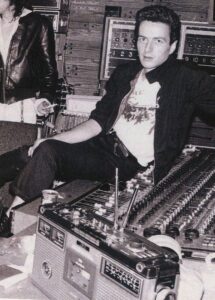
They forwent a portion of the royalties of ‘Sandinista’. They did this in order to keep the price down and to get Sandino’s message of resistance to imperialism across the planet.
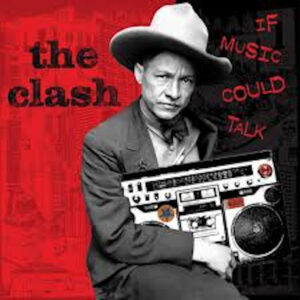
It was Joe’s rebel rousing music that brought the situation in Nicaragua to Bono’s attention, influencing him in going there to meet with the leader of the revolutionary movement and Ernesto Cardenal, the minister of culture. It inspired him to write ‘Bullet the Blue Sky’. Bono spoke to the doors that Joe opened up for him, and the worlds that lay behind them.
Like many supporters of the changes in Nicaragua, Joe would have been disappointed and saddened by the eventual degeneration of the emergent democracy, a feature of all revolutionary societies . The establishment of monopoly control by Daniel Ortega would lead to an absence of democratic guarantees, the presence of political prisoners and a level of official violence.
It would led once more to the cynical conclusion by many that revolutionary change is impossible: “Meet the new boss, same as the old boss.”
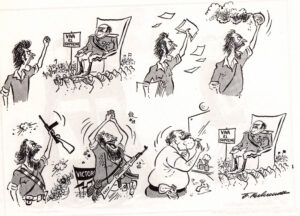
Pete Townshend, Joe’s collaborator, included this sentiment in ‘Won’t Get Fooled Again’.

He later said that the song was not strictly anti-revolution despite the lyric “We’ll be fighting in the streets”, but stressed that revolution could be unpredictable, adding, “Don’t expect to see what you expect to see. Expect nothing and you might gain everything.”
It’s now the historical task of the Nicaraguan people to correct this deviation and gain justice for all.
.